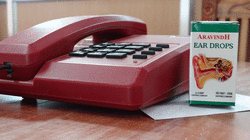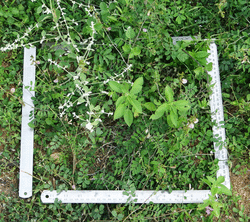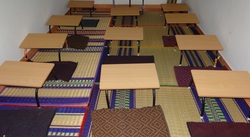 Landlines are back at Aravindh
Landlines are back at Aravindh Thomas Carlyle, a Scottish essayist, once said, “Man is a tool using animal”. In our daily life, most of us use countless number of tools. We use vehicles to reach office, pen to write letters, wrist watches to check time, and so on. Every product or service, at the end of the day, is a tool.
Professor Clayton Christensen of Harvard Business School wants businesses people understand this simple fact. He rightly observes that people only “hire” a product to do a job – for instance, customers do not want to own a six-inch drilling machine but what they want is only a six-inch hole.
But many businesses try to sell their “solutions” (their products) to people who do not have problems. Mobile phone is a good modern day example of this. Using heavy advertising, promotions, and creating aspirational value, companies sells feature-rich phones to everyone. Even in rural India, people who earn low wages, save whatever they earn for days and months, often neglecting to spend for their basic needs, to buy high-end smart phones. So, it is tempting to define mobile phone as “is a man-using tool”.
No doubt, mobile phone is a highly useful tool for professionals like doctors or fire fighters who should be informed of an emergency instantly. Why would an accountant or a student need one? Even if we need, do we really need the so-called smart phones that come with camera, calendar, torch light, radio, music, audio recorder, TV, projector, and what not.
Here the question is who is smart? The company that sells phones that we don’t need? Or the consumer, who parts his/her precious earnings to buy something just to impress others? You know the answer very well!
We may think that smart phones have helped us stay connected with our family and friends all the time, even when we are at work. However, studies show that we are losing our hard-earned rights for eight hour work with mobile phones. A recent global study, 'Well-being of the Mobile Workforce', suggests that besides the loss of work-life balance, "connected" professionals suffer sleep disorders, higher stress levels and reduced productivity gains.” The study covered over 5,600 mobile enterprise employees at 1,100 companies worldwide.
It is in this backdrop that, we at Aravindh Herbal, brought back the humble landline telephones, and freed our staff from working after office hours. Today, in our office, there is a landline phone on every desk. Though our customers can leave their message or orders round the clock using our Interactive Voice Response System, our staff can be contacted only during office hours. Let us use tools and do not let tools use us.
Professor Clayton Christensen of Harvard Business School wants businesses people understand this simple fact. He rightly observes that people only “hire” a product to do a job – for instance, customers do not want to own a six-inch drilling machine but what they want is only a six-inch hole.
But many businesses try to sell their “solutions” (their products) to people who do not have problems. Mobile phone is a good modern day example of this. Using heavy advertising, promotions, and creating aspirational value, companies sells feature-rich phones to everyone. Even in rural India, people who earn low wages, save whatever they earn for days and months, often neglecting to spend for their basic needs, to buy high-end smart phones. So, it is tempting to define mobile phone as “is a man-using tool”.
No doubt, mobile phone is a highly useful tool for professionals like doctors or fire fighters who should be informed of an emergency instantly. Why would an accountant or a student need one? Even if we need, do we really need the so-called smart phones that come with camera, calendar, torch light, radio, music, audio recorder, TV, projector, and what not.
Here the question is who is smart? The company that sells phones that we don’t need? Or the consumer, who parts his/her precious earnings to buy something just to impress others? You know the answer very well!
We may think that smart phones have helped us stay connected with our family and friends all the time, even when we are at work. However, studies show that we are losing our hard-earned rights for eight hour work with mobile phones. A recent global study, 'Well-being of the Mobile Workforce', suggests that besides the loss of work-life balance, "connected" professionals suffer sleep disorders, higher stress levels and reduced productivity gains.” The study covered over 5,600 mobile enterprise employees at 1,100 companies worldwide.
It is in this backdrop that, we at Aravindh Herbal, brought back the humble landline telephones, and freed our staff from working after office hours. Today, in our office, there is a landline phone on every desk. Though our customers can leave their message or orders round the clock using our Interactive Voice Response System, our staff can be contacted only during office hours. Let us use tools and do not let tools use us.





 RSS Feed
RSS Feed
